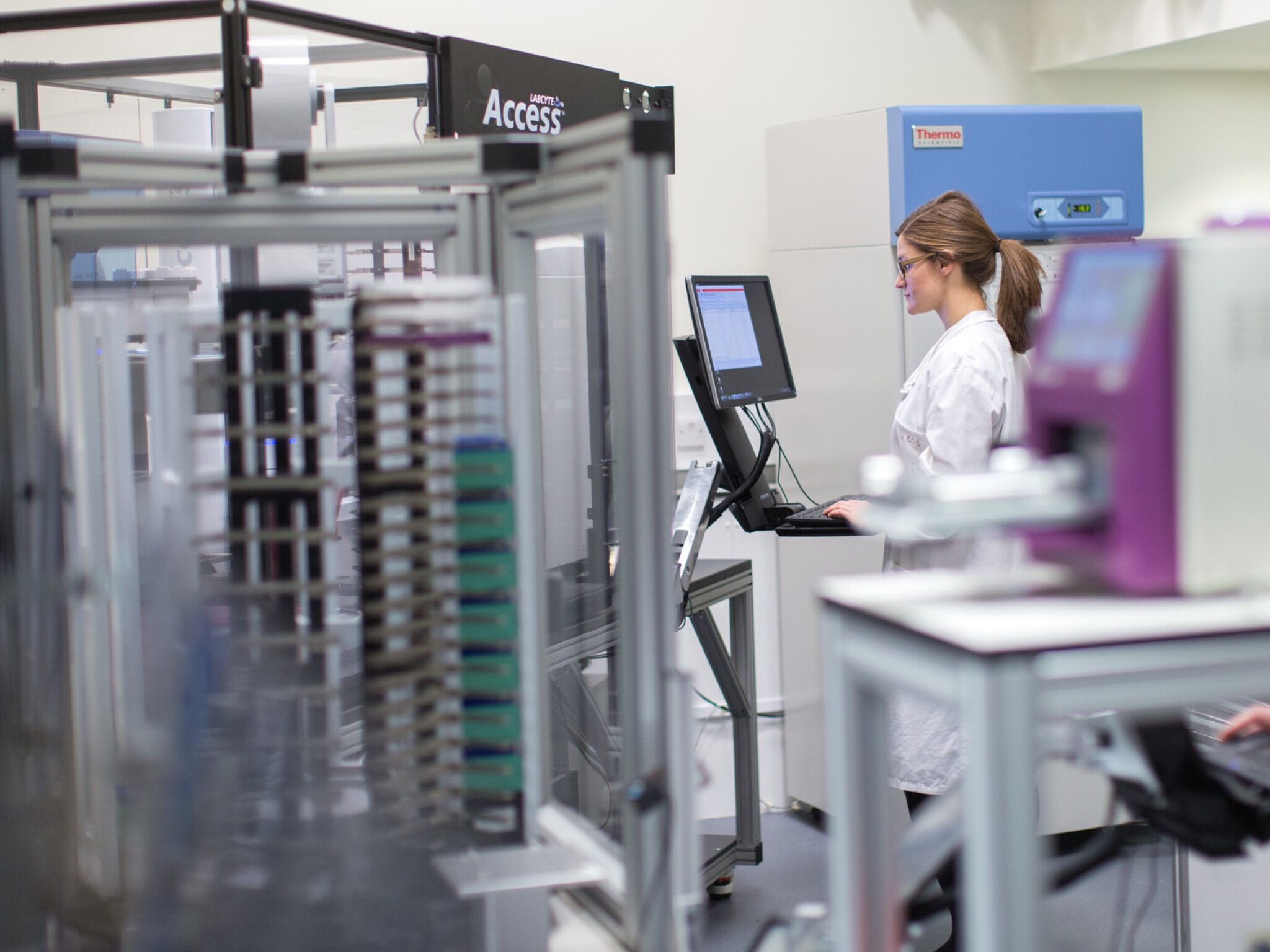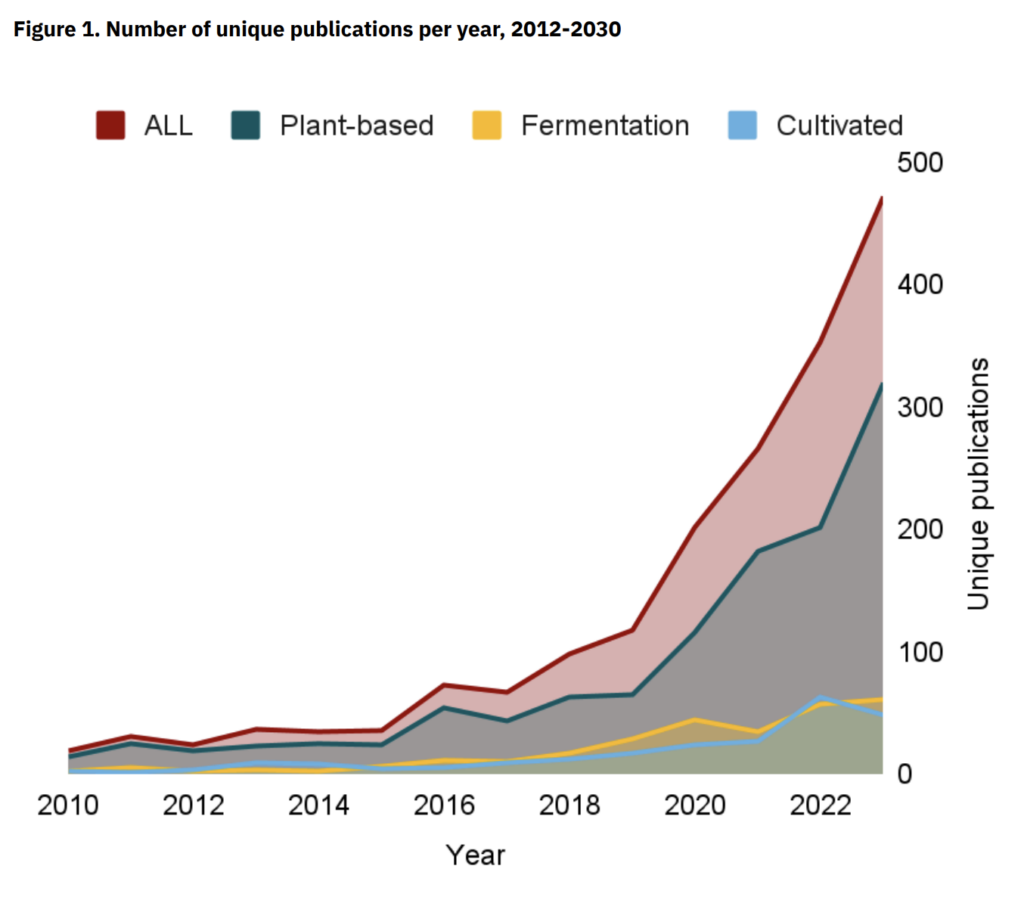
Research efforts for alternative proteins like plant-based and cultivated meat received €290M in funding last year, just as the number of studies on the topic proliferated.
The only way for alternative proteins to reach the mainstream is through advancing research into ingredients, technologies, and consumer needs.
So it’s an encouraging sign that 2023 saw record sums of money (€290M) granted to researchers in Europe exploring plant-based, cultivated, and fermentation-derived proteins.
Additionally, over a quarter (26%) of all alternative protein research published in Europe came out in 2023, totalling 472. Since 2010, the UK has produced the most amount of research on future food, publishing 255 papers, followed by Germany (243) and the Netherlands (199).
This is based on analysis by the Good Food Institute (GFI) Europe, which suggested that the findings signpost the region’s massive potential, but also underline that the field remains in its infancy and at risk of being held back due to a lack of international collaboration, an inconsistent approach to funding, and key technical areas being overlooked.
How research funding for alternative protein was distributed

Within Europe, the EU collectively pumped in €252M for future food research, half of which was invested in 2023 and early 2024, chiefly from its Horizon Europe programme.
But when it came to individual countries, Denmark led the way with €96M, spearheading the Nordic nations’ leadership with alternative proteins. Collectively, Denmark, Norway, Sweden and Finland invested a fifth of Europe’s total.
The UK was second on the list, with €90M invested in research, thanks to the establishment of a network of research hubs by state agency UK Research and Innovation.
Plant-based protein studies commanded the most funding (39%), followed by cross-cutting research that featured a combination of alternative protein pillars (31%). Meanwhile, 21% of these funds went into fermentation, and a tenth were dedicated solely to cultivated meat.
Meat was the most popular target end product for these publications, being the focus of 65% of research investments in 2023. Dairy was next with 16%, while seafood research projects received 8% of the share. That said, governments and funding institutions are increasingly embracing cultivated meat research, and public investments into fermentation are expected to surpass €100M for the first time this year.
The Netherlands topped in the cultivated meat segment with €67M invested, strengthening its foothold as a cultivated meat leader in Europe. It became the first EU country to approve and host public tastings for these proteins. Finland, meanwhile, put the most money into fermentation research (€54M).
Some of the headline commitments include the €38M set aside for alternative proteins in Germany’s federal budget, the European Innovation Council’s €50M investment for precision-fermented and algae-based foods, and the Dutch government’s €60M commitment for a cellular agriculture ecosystem.
With more major investments expected in the second half of this year – like the €27M invested in Bezos Earth Fund‘s Center for Sustainable Protein in London – 2024 is on track to equal or even surpass 2023’s record as the highest investment year, making it five straight years of increasing research funding.
European research urged to ramp up international collaboration

The outlook for the alternative protein publishing system is much the same, with plant-based proteins the focus of 64% of publications in 2023. Unlike the funding environment, cross-pillar research publications were low (8%), trumped by cultivated meat (13%) and fermentation (16%).
But European researchers working on alternative proteins have been collaborating internationally to a much lower degree than the continent’s average, with only 39% of studies co-authored by colleagues from outside Europe, versus the 56% average for the EU and 64% for the UK.
GFI Europe highlights the potential for these researchers to have a global impact, since existing papers have accumulated thousands of citations in 144 countries, particularly India, the US and China.
Meanwhile, research into cultivated and fermentation-derived proteins remains underdeveloped, with the number of papers fluctuating and even falling in certain years. Studies into the technical advancements needed to commercialise alternative proteins also only scratch the surface, with many key areas – like designing fermenters for cultivated meat scale-up, reducing downstream processing costs for precision fermentation, and developing functional ingredients for plant-based meat – remaining underfunded.
While this highlights the nascency of these fields, GFI Europe argues that these technology areas should be prioritised in future investment, with new mechanisms that enable greater collaboration to solve the major challenges of cellular agriculture.
The report also suggests that the research community is “quite fragmented” and needs to achieve a higher degree of integration and cohesion, underlining the need for greater support to stimulate and sustain cross-border, interdisciplinary research.
At the same time, regional disparity is a challenge for this sector, with considerable differences found in the research output and career opportunities in different European countries. “Governments in underrepresented countries should explore mechanisms through which they can stimulate greater research activity in alternative proteins to capitalise on the follow-on economic benefits of innovation,” the report reads.
“This report puts Europe’s alternative protein research under the microscope, finding a rapidly growing field offering exciting opportunities – but also an inconsistent approach to funding and an urgent need to build a more coherent network,” said Stella Child, research and grants manager at GFI Europe.
She added: “To capitalise on this growing expertise and make sure innovations developed by European scientists can be commercialised here, governments and funding bodies must create more opportunities for alternative protein scientists to collaborate and provide dedicated funding to boost research in overlooked areas.”
The post European Research Funding for Alt-Protein Reached A Record High in 2023 appeared first on Green Queen.
This post was originally published on Green Queen.